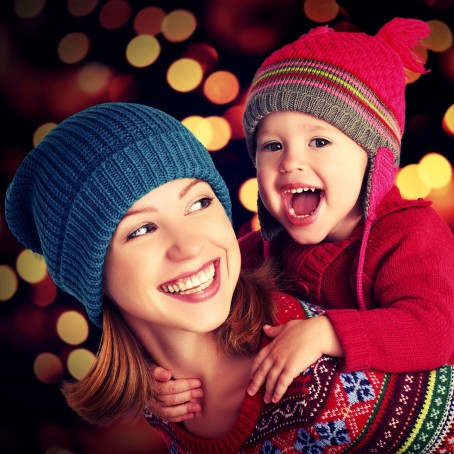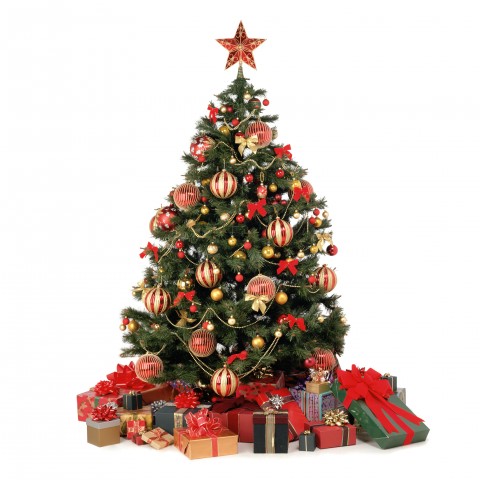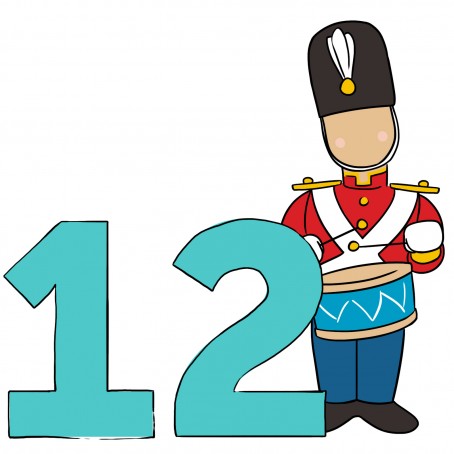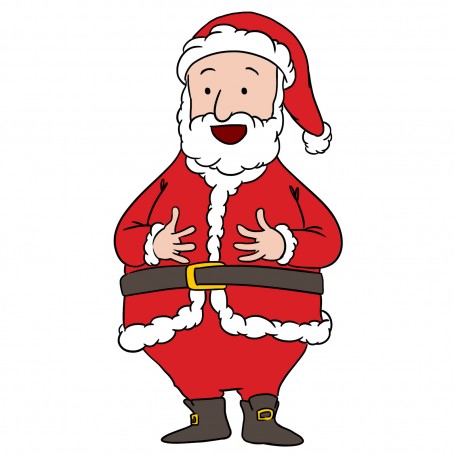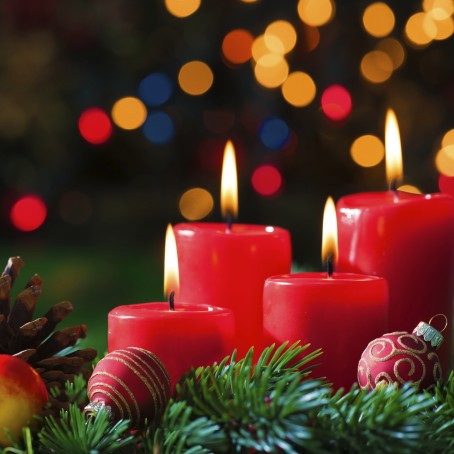Do you know any ways to wish someone a ‘Merry Christmas’ in Bulgarian? BulgarianPod101 brings you easy-to-learn translations and the correct pronunciation of Bulgarian Christmas phrases!
Christmas is the annual commemorative festival of Christ’s birth in the Western Christian Church. It takes place on December 25th and is usually celebrated with much food and fanfare! However, not all cultures celebrate Christmas. In some countries, Christmas is not even a public holiday! However, many countries have adapted Christmas and its religious meaning to tally with their own beliefs, or simply in acknowledgment of the festival’s importance to other cultures. If you want to impress native Bulgarian speakers with culturally-appropriate Christmas phrases and vocabulary, BulgarianPod101 will teach you the most important ways to wish someone a ‘Merry Christmas’ in Bulgarian!
Table of Contents
- How to Celebrate Christmas in Bulgaria
- Holiday Greetings and Wishes
- Must-Know Christmas Day Vocabulary
- Twelve Days of Christmas
- Top 10 Christmas Characters
- How BulgarianPod101 Can Help You
1. How to Celebrate Christmas in Bulgaria
“Christmas Eve” or Badni vecher in Bulgarian and “Christmas” or Koleda are holidays popular throughout the world. In Bulgaria, they are “family holidays,” or semeyni praznitsi, and are among the most important Christian holidays of the year. For this reason, Bulgarians celebrate the holiday for three consecutive days—from December 25 to December 27. On these days, everyone spends time with their nearest and dearest, and there are many special dishes and rituals for these holidays.
Now, before we get into more detail, I’ve got a trivia question for you-
What does the word Badni literally mean and why is Badni vecher a strange name for “Christmas Eve”?
If you don’t already know, keep reading! The answer will be revealed at the end!
The holiday called Badni vecher is an Orthodox Christian holiday with many traditional practices. On this day, an abundant feast is prepared but all meals must be meatless. The main dishes usually includes beans or bob, vine or cabbage leaves stuffed with rice, or in Bulgarian sarmi, boiled wheat or zhito, pumpkin pastry, or tikvenik, and dried fruit compote, or in Bulgarian oshav. There will also be fruits, garlic, walnuts, and honey. There must be an odd number of dishes. The most important element is the ceremonial bread. Each member of the family receives a piece of it. In this bread there are lucky charms, and the main one is a coin which brings health and good luck to the person who gets it.
On Christmas Eve, there are lots of folk enchantments and predictions. For example, everyone picks a walnut from those on the table, breaks it open, and, if the walnut is light-colored, it means good luck. At midnight, Christmas comes and, according to the tradition, the koledari will stop by. This is a group of young men led by an older man who go from house to house, dressed in traditional Bulgarian folk costumes. They sing ritual songs and wish happiness to the family, blessing the home at the end.
There is a belief that wishes come true on Christmas.
According to Christianity, Christmas is the day of Christ’s birth—the day when the Son of God, Jesus Christ, was born. That is why this day is also the Name Day or Imen den of everyone named “God’s Gift” or in Bulgarian Bozhidar, “Joyful,” or Hristo, “Glorious,” or in Bulgarian Radoslav, “God is with us” or Emanuil, and other derivative names.
On December 27, St. Stefan’s Day is celebrated, and the people with this name celebrate their Name Day. On these holidays, people go to the church in order to attend the solemn liturgical services.
At home, Bulgarians celebrate a lot like people in other countries around the world—with a Christmas tree, decorations, and, of course, with “Santa Claus” or in Bulgarian Dyado Koleda. During socialist rule, the “Santa Claus” was called “Grandfather Frost” or in Bulgarian Dyado Mraz and he brought presents on New Year’s Day instead of Christmas. However, it has always been a tradition for Dyado Koleda to pay visits to schools and kindergartens.
Now it’s time to answer our quiz question-
Do you know where the name Badni vecher for “Christmas Eve” comes from and what the word badni means?
According to tradition, a special log called badnik is blessed and set alight in the fireplace. The name badni comes from that. The meaning of the word itself is related to another word—badnina which has the meaning of “faith in the future.”
2. Holiday Greetings and Wishes for the Holiday Season
1- Merry Christmas!
Весела Коледа!
Vesela Koleda!
Do you know how to say ‘Merry Christmas’ in Bulgarian? Learn here how to pronounce it perfectly! ‘Merry’ means to be joyful, to celebrate and generally be in good spirits. So, with this phrase you are wishing someone a joyful, celebratory remembrance of Christ’s birth!
2- Happy Kwanzaa!
Весела Куанза!
Vesela Kuanza!
Surprise your African-American, or West African native friends with this phrase over the Christmas holidays! Kwanzaa is a seven-day, non-religious celebration, starting on Dec 26th each year. It has its roots in African American modern history, and many people celebrate both Kwanzaa and Christmas!
3- Have a happy New Year!
Щастлива Нова Година!
Shtastliva Nova Godina!
In countries where Christmas is not officially celebrated, but a Gregorian calendar is observed, this would be a friendly festive-season wish over New Year.
4- Happy Hanukkah!
Честита Ханука!
Chestita Hanuka!
Hanukkah is the beautiful Hebrew festival over November or December each year. It is also called the ‘Festival of Lights’ and is celebrated to commemorate the Jewish freedom of religion.
5- Have a great winter vacation!
Да си изкарате страхотно зимната почивка!
Da si izkarate strahotno zimnata pochivka!
This is a good phrase to keep handy if someone doesn’t observe any religious festival over the Christmas holidays! However, this will only be applicable in the Northern hemisphere, where it is winter over Christmas.
6- See you next year!
Ще се видим догодина!
Shte se vidim dogodina!
Going away on holiday over Christmas season, or saying goodbye to someone about to leave on vacation? This would be a good way to say goodbye to your friends and family.
7- Warm wishes!
С най-топли пожелания!
S nay-topli pozhelaniya!
An informal, friendly phrase to write in Bulgarian Christmas cards, especially for secular friends who prefer to observe Christmas celebrations without the religious symbolism. It conveys the warmth of friendship and friendly wishes associated with this time of year.
8- Happy holidays!
Весели празници!
Veseli praznitsi!
If you forget how to say ‘Merry Christmas!’ in Bulgarian, this is a safe, generic phrase to use instead.
9- Enjoy the holidays!
Насладете се на празниците!
Nasladete se na praznitsite!
After saying ‘Merry Christmas’ in Bulgarian, this would be a good phrase with which to wish Christmas holiday-goers well! It is also good to use for secular friends who don’t celebrate Christmas but take a holiday at this time of the year.
10- Best wishes for the New Year!
С най-сърдечни пожелания за Новата година!
S nay-sardechni pozhelaniya za Novata godina!
This is another way of wishing someone well in the New Year if they observe a Gregorian calendar. New Year’s day would then fall on January 1st.
3. Must-Know Christmas Day Vocabulary
Christmas is associated with many traditions and religious symbols in multiple countries across the world. It originated centuries ago in the West with the birth of Christianity, and the celebrations are often embedded with rich cultural significance. So, by now you know how to say Merry Christmas in Bulgarian! Next, learn pertinent vocabulary and phrases pertaining to Christmas, as well as how to pronounce them correctly. At BulgarianPod101, we make sure you sound like a native speaker!
1- Christmas
Рождество Христово
Rozhdestvo Hristovo
This is the Bulgarian word for ‘Christmas’. Most happy Christmas wishes in Bulgarian will include this word!
2- Snow
сняг
snyag
In most Northern-hemisphere countries, Christmas is synonymous with snow, and for Christmas, the snowman is often dressed as Santa Claus.
3- Snowflake
снежинка
snezhinka
Snowflakes collectively make up snow. A single snowflake is small, white, light like a feather and icy cold! When put under a microscope, the snowflake reveals itself to have the most beautiful, symmetrical patterns. These patterns have become popular Christmas decorations, especially in Western countries.
4- Snowman
снежен човек
snezhen chovek
As you guessed – a snowman is only possible to build if it is snowing! What a fun way to spend Christmas day outside.
5- Turkey
пуйка
puyka
Roast turkey is the traditional main dish on thousands of lunch tables on Christmas day, mainly in Western countries. What is your favorite Christmas dish?
6- Wreath
венец
venets
Another traditional Western decoration for Christmas, the wreath is an arrangement of flowers, leaves, or stems fastened in a ring. Many families like to hang a Christmas wreath outside on their houses’ front doors.
7- Reindeer
северен елен
severen elen
Reindeer are the animals commonly fabled to pull Santa Claus’ sled across the sky! Western Christmas folklore tells of Father Christmas or Santa Claus doing the rounds with his sled, carrying Christmas presents for children, and dropping them into houses through the chimney. But who is Santa Claus?
8- Santa Claus
Дядо Коледа
Dyado Koleda
Santa Claus is a legendary and jolly figure originating in the Western Christian culture. He is known by many names, but is traditionally depicted as a rotund man wearing a red costume with a pointy hat, and sporting a long, snow-white beard!
9- Elf
елф
elf
An elf is a supernatural creature of folklore with pointy ears, a dainty, humanoid body and a capricious nature. Elves are said to help Santa Claus distribute presents to children over Christmas!
10- Rudolph the Red-Nosed Reindeer
Рудолф – еленът с червения нос
Rudolf – elenat s cherveniya nos
‘Rudolph the Red-Nosed Reindeer’ is a Christmas song based on an American children’s story book with the same name. Rudolph is one of Santa’s reindeer. The song became more famous than the book, and can still be heard playing in many shopping malls over Christmas time across the globe!
11- North Pole
Северен полюс
Severen polyus
The cold North Pole is where Santa Claus is reputed to live with his reindeer!
12- Sled
шейна
sheyna
A sled is a non-motorised land vehicle used to travel over snow in countries where it snows a lot, and is usually pulled by animals such as horses, dogs or reindeer. This one obviously refers to Santa’s sled! Another word for sled is sleigh or sledge.
13- Present
подарък
podarak
Gift or present giving is synonymous with Christmas Eve and the greatest source of joy for children over this festive time! This tradition signifies that Christ’s birth was a gift to mankind, but not all people who hand out presents over Christmas observe the religious meaning.
14- Bell
звънец
zvanets
On Christmas Day, or Christmas Eve, many religious celebrants enjoy going to church for a special sermon and Christmas rituals. The start of the sermon is often announced with bells or a bell, if the church has one. For this reason, the sound of ringing bells is often associated with Christmas Day.
15- Chimney
комин
komin
The chimney is the entrance Santa Claus uses to deliver children’s presents on Christmas Day, according to folklore! Wonder how the chubby man and his elves stay clean…?!
16- Fireplace
камина
kamina
In most countries where it snows, Christmas is synonymous with a fire or burning embers in houses’ fireplaces. Families huddle around its warmth while opening Christmas presents. Also, this is where Santa Claus is reputed to pop out after his journey down the chimney!
17- Christmas Day
Рождество Христово
Rozhdestvo Hristovo
This is the official day of commemorative celebration of Christ’s birth, and falls each year on December 25.
18- Decoration
украса
ukrasa
Decorations are the colourful trinkets and posters that make their appearance in shops and homes during the Christmas holiday season in many countries! They give the places a celebratory atmosphere in anticipation of the big Christmas celebration. Typical Christmas decorations include colorful photographs and posters, strings of lights, figurines of Santa Claus and the nativity scene, poinsettia flowers, snowflakes and many more.
19- Stocking
чорап
chorap
According to legend, Santa Claus places children’s presents in a red stocking hanging over the fireplace. This has also become a popular decoration, signifying Christmas.
20- Holly
бодлива зеленика
bodliva zelenika
Holly is a shrub native to the UK, and parts of Europe, Africa and Asia. It is characterised by glossy, spiny-toothed leaves, small, whitish flowers, and red berries. Ironically, its significance for Christmas relates to Christ’s crucifixion and suffering rather than his birth. However, the leaves’ distinctive shape and image have become popular Christmas decorations.
21- Gingerbread house
натруфена къща
natrufena kashta
According to legend, the gingerbread house synonymous with Christmas is related to Christ’s birth place, Bethlehem. Bethlehem literally means ‘House of Bread’. Over centuries, it has become a popular treat over Christmas time in many non-religious households as well.
22- Candy cane
захарно чадърче
zaharno chadarche
According to folklore, Christmas candy canes made their appearance first in Germany in the 16th century. A choir master gave children the candy canes to suck on in church in order to keep them quiet during the Christmas sermon! Apparently, the candy is shaped like a cane in remembrance of the shepherds who were the first to visit the baby Jesus. Today, like gingerbread houses, they are still a popular sweet over the festive season!
23- Mistletoe
имел
imel
Mistletoe is a parasitic plant that grows on certain trees. In the Middle Ages, it was believed that the mistletoe has magical powers, and could protect a household from evil if hung above a door during December. The belief didn’t last but the habit did, and the mistletoe is another popular Christmas decoration!
4. Twelve Days of Christmas
Wow, you’re doing extremely well! You know how to wish someone a Merry Christmas in Bulgarian, and you learned pertinent vocabulary too! The Twelve Days of Christmas is not very well known in modern times, so, you’re on your way to becoming an expert in Christmas traditions and rituals. Well done!
The Twelve Days of Christmas, also known as Twelvetide, is a traditional festive period of 12 days dedicated to celebrate the nativity of Christ. Christmas Day is, for many who observe Twelvetide, the first day of this period.
‘The Twelve Days of Christmas’ is also a popular Christmas song about a series of gifts given on each day of Twelvetide. According to experts, these gifts were created as a coded reference to important symbols in the Christian church. Here is a list of those gifts mentioned in the song! Do you recognise them?
5. Top 10 Christmas Characters in American Culture
This is fantastic, you know how to explain almost everything about Christmas in Bulgarian! However, do you know the most popular Christmas characters in American culture? Your knowledge will not be complete without this list.
6. BulgarianPod101 Is One Of The Best Online Language Schools Available!
We don’t just say this – we can prove it! Geared to your personal needs and goals, we have several learning paths from which to choose. From Bulgarian for Absolute Beginners to Advanced Bulgarian, lessons are designed to meet you where you are, and increase your language abilities in fun, easy and interactive lessons! Mastering a new language has never been this easy or enjoyable.
We have over a decade of experience and research behind us, and it shows! With thousands of audio and video lessons, detailed PDF lessons and notes, as well as friendly, knowledgeable hosts, BulgarianPod101 is simply unbeatable when it comes to learning correct Bulgarian. Plenty of tools and resources are available when you study with us. New lessons are added every week so material remains fresh and relevant. You also have the option to upgrade and enjoy even more personalised guidance and services. This is a sure way to fast-track your learning!
So, this Christmas, why don’t you give yourself a present and enroll in BulgarianPod101? Or give an enrollment as a present to a loved one. It will be a gift with benefits for a whole lifetime, not just over Christmas!





